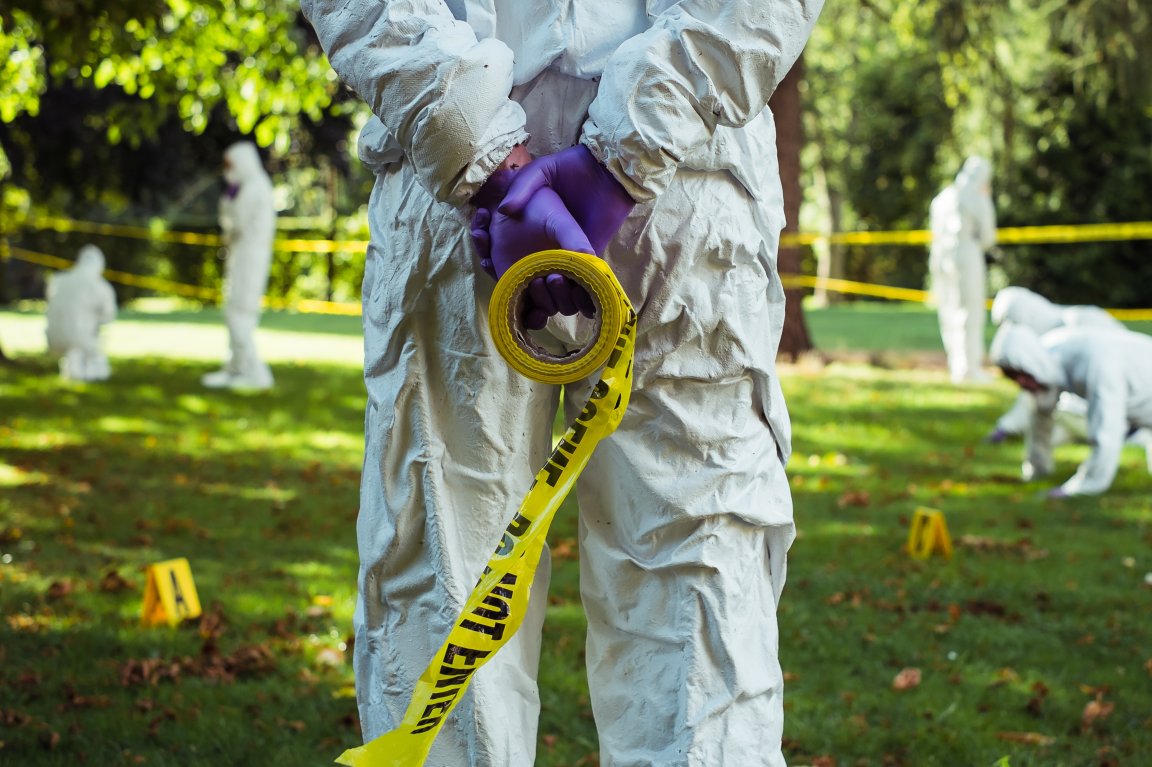
Farm Fresh
The decomposition of a human can be affected by many different factors, like moisture, temperature, and insects, not to mention the diverse aspects of the body itself. When forensic scientists are called in to identify a cadaver, or to help solve a murder, body farms can be a great help.
A body farm is an outdoor laboratory where researchers can delve into taphonomy, the study of what happens to an organism after its death. Donated human cadavers are used in experiments that explore the different processes that occur as the body decomposes.

There are several body farms in the U.S., and one in Australia. There is also a push to create a facility in the UK, where similar research is conducted using pig remains — which was also the case in the U.S. until 1972. But, while there are many useful similarities between human and pig biology, there are also many differences which raise questions about how accurate these studies can be.
“Much of what we know about human decomposition was discovered in US body farms,” said Dr. Anna Williams from the University of Huddersfield, who presented on the need for a body farm in the UK at the British Science Association’s annual Science Festival.
The More You Know
Decomposition generally follows a similar process no matter what conditions a body is in. However, the timing of this process can change significantly based on everything from the amount of moisture in the surroundings to the person’s diet.
One way to understand more about how these factors influence decomposition is to observe a body decay in a controlled environment.
Last year, a study of decomposing bodies outlined a method of establishing a time of death by understanding how and when certain bacteria come and go from a fresh cadaver. Current techniques tend to focus on insect colonization, but this can be unreliable as weather conditions can influence insect behavior.
Body farms can also be used to teach dogs how to track the scent of a dead body, and in experiments studying how decomposition affects facial features, fingerprints, and how far into the process DNA can be successfully recovered.
There are plenty of ways that body farms can help push the field of forensic science forward towards a future where a greater number of facilities would support these advances. However, there are critics who would argue that there are better ways to perform this research.
Grave Concerns
It’s easy to see why members of the public wouldn’t necessarily want a body farm in their back yard. Concerns ranging from a site’s potential to lower nearby property values to its capacity to attract vultures and coyotes have been raised in regards to body farms in the U.S.
There have also been questions about how effective these farms are in terms of research. Human cadavers are obviously more relevant to investigations than pig cadavers, but animal corpses are much easier to get access to. Experiments carried out at body farms have rarely used more than three or four bodies, which has led some scientists to consider their findings anecdotal, rather than authoritative.
However, even if body farms aren’t a perfect solution, they do offer insight that we can’t get from anywhere else. In the future, there might be a way to accurately model the decomposition process so that it can be studied without the need for actual cadavers, but for now, body farms are a useful — if a little unsettling — resource.